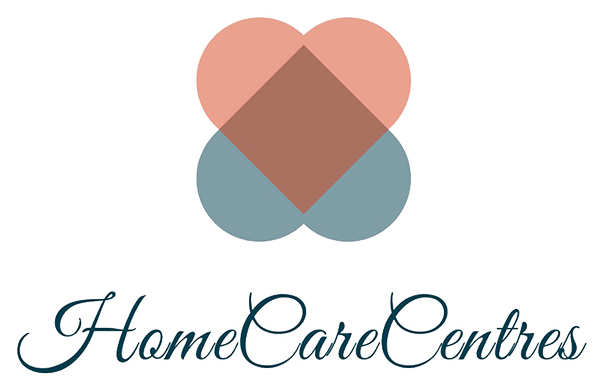
The Essential Products Every Home Caregiver Needs
Caring for a loved one at home is one of the most selfless and rewarding acts, but it’s also a role filled with challenges—especially when your loved one is experiencing memory loss or struggles with activities of daily living (ADLs). The right products can make a world of difference in creating a safer, more comfortable environment while easing the physical and emotional burden on caregivers.
This post contains affiliate links, which means I may receive a small commission, at no cost to you, if you make a purchase through a link
To put the need for home caregiving into perspective, consider these key statistics:
| Category | Number/Cost |
|---|---|
| Total caregivers in the U.S. today | 53 million (as of 2023) |
| Projected individuals needing care | 88 million (by 2033) |
| Estimated caregivers needed | 65 million (by 2033) |
| Cost of 24/7 in-home private care | $2,500–$3,500 per week (national average) |
These figures underscore the importance of preparing homes for caregiving and understanding the resources required to meet growing demands.
Essential Products for Home Caregiving
Here’s a guide to the essential products every caregiver should have to provide quality care for loved ones with memory loss or difficulty managing ADLs.
1. Mobility and Safety Aids
Safety is a top concern for caregivers, especially for loved ones with memory impairments. These tools can help reduce the risk of falls and injuries:
- Grab Bars and Handrails: Install these in high-risk areas like bathrooms and hallways to provide stability and prevent falls. Here are some which many homes use. https://amzn.to/4hW64FU
- Non-Slip Mats: Place these in showers, bathtubs, and other slippery surfaces to enhance safety.
- Bed Rails: These prevent falls during the night and offer support when getting in and out of bed.
- Transfer Devices: A transfer belt or slide board can assist with moving your loved one between beds, chairs, or wheelchairs without strain.
2. Hygiene and Personal Care Essentials
As ADLs like bathing, dressing, and grooming become difficult, having the right products can help maintain dignity and hygiene:
- Adult Wipes and Disposable Gloves: For easy cleaning and maintaining hygiene during caregiving tasks.
- No-Rinse Cleansers: Great for bathing on days when a full shower or bath is not feasible.
- Incontinence Supplies: High-quality adult briefs, liners, and bed pads are crucial for managing incontinence discreetly and comfortably.
- Adaptive Clothing: Items with Velcro closures or magnetic buttons simplify dressing and minimize frustration. I particularly like these dresses for bedbound ladies and they can be found in many styles. https://amzn.to/4eP65Zs
3. Cognitive and Memory Aids
For those experiencing memory loss, tools that promote routine and orientation are invaluable:
- Digital Clocks with Calendars: Large, easy-to-read displays showing the time, day, and date help orient loved ones who may forget these details.
- Medication Dispensers: Automatic pill dispensers with alarms ensure medication is taken on time and in the correct dosage.
- Picture-Based Labels: Use photos to label drawers, cabinets, and rooms to help your loved one locate items independently.
- Routine Reminders: Devices like smart speakers or apps can provide gentle reminders for meals, medications, or appointments.
The Growing Need for Home Care Products
The demand for caregiving products is poised to grow exponentially. Consider the following:
| Category | 2023 Estimate | 2033 Projection |
|---|---|---|
| Individuals needing home care | 14 million | 25 million |
| Expected caregivers in the workforce | 9 million | 15 million |
| Market growth for home care products | $25 billion industry | $45 billion industry |
These trends reflect the critical role caregivers play in society and the tools they’ll need to meet the growing challenges of care.
4. Comfort and Wellness Products
Comfort is essential for both physical and emotional well-being. These products can help your loved one feel more at ease:
- Pressure-Relief Cushions: Prevent bedsores and provide additional comfort for individuals who spend extended time in chairs or beds.
- Some individuals when placed in their recliners or travelling in a wheelchair will get very uncomfortable. Remember they cannot move themselves as someone with good mobility can so, a great assist is a pressure relief cushion. https://amzn.to/493HE9k
- Weighted Blankets: These can help reduce anxiety and improve sleep quality in those with cognitive impairments. Be sure to check and make sure these match the needs, comfort and safety of your loved ones.
- Personalized Activities: Puzzles, memory games, or photo albums can provide meaningful engagement and help preserve cognitive abilities.
Caring for Yourself as a Caregiver
While this list focuses on products for your loved one, don’t forget about your own needs. Comfortable shoes, a supportive chair for breaks, and a planner to organize your day are small but impactful investments in your well-being.
Being a caregiver requires patience, strength, and love—but with the right tools, you can create an environment where your loved one feels safe and valued, and where you feel supported in your vital role. These are some basics ideas but as you venture along this journey other helpful tools will be necessary.
Do you have a must-have product or tip that’s made your caregiving journey easier? Please share it in the comments below.
Until next time-
CareGiverDaze

